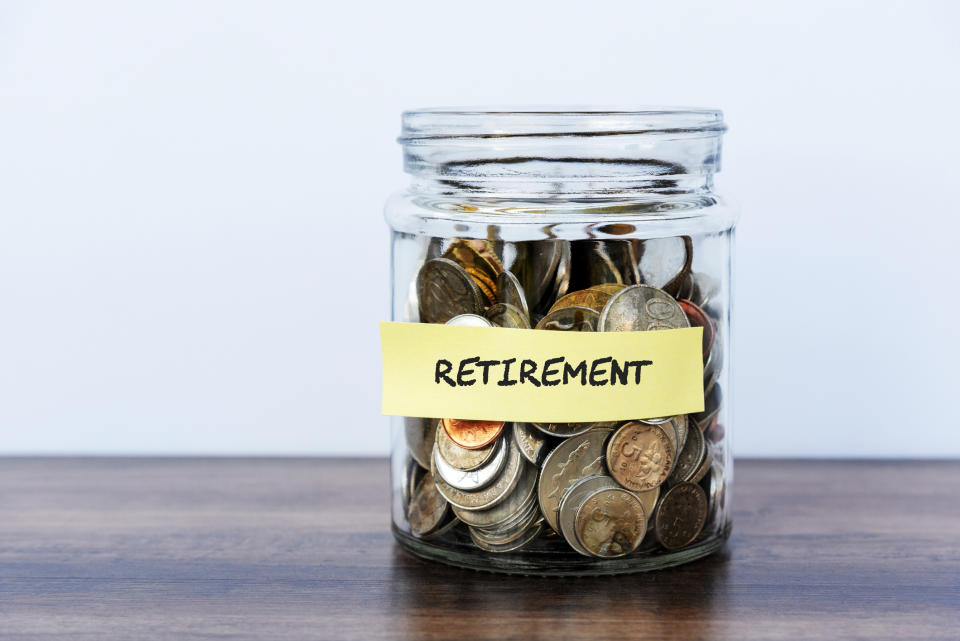Turn in property market should serve as a major warning for millennials

Here’s an uncomfortable truth: most Aussies don’t have enough money saved to retire comfortably.
Like death, we tend to put off thinking about our retirement. It’s simply too far away to worry about.
Indeed, if you’re like most Australians staring down the barrel of potentially years of living off government assistance when your super runs out, you probably don’t want to think about it.
Well, I want to stop you in your tracks. You need to think about it. Now.
More from David Taylor: How to make $1,000 in 30 minutes
More from David Taylor: Biggest investment craze in US history making waves Down Under: What is it?
More from David Taylor: Bank savings going nowhere? Here's how to take some control back
Comfortable and miserable retirements
First, let’s define some parameters.
The Association of Superannuation Funds of Australia (ASFA) classifies two types of retirement lifestyles: “comfortable” and “modest”.
What’s a comfortable retirement? Think having a good car, good private health cover, eating out, and travelling.
Then there’s a modest retirement.
Think fairly basic activities, forget fine dining or heading overseas for a holiday, and no budget for home improvements and the like.
ASFA has calculated that a single person wishing to have a “comfortable” retirement would need, at age 65, a nest egg of about $545,000, or $640,000 for a couple.
A modest retirement, however, only requires a nest egg of approximately $70,000 for both singles and couples.
That all sounds fine, right? I mean worst case scenario, you have to keep to a tight budget.
Unfortunately, it gets worse.
An unfortunate assumption
The massive assumption ASFA makes is that both these groups own their own home and are in good health.
The fact is about 285,000 households are renting (based in stats from this year). And if you know anyone over the age of 70, you’ll know that most likely they have one or two health problems.
So it’s actually not about saving ~ $100,000 in super to afford even modest lifestyle. If you’re renting, and you’re not well, you’ll have to save much more than that – potentially double.
Why raise this issue now?
This year the property market is starting to show signs of life again. Prices are expected to keep climbing into next year and beyond.
Why?
Simple really: ultra-low interest rates, slightly relaxed lending standards, on-going tax incentives and shortages of supply.
I suspect earlier this year many wanna-be-first homebuyers thought a small window of opportunity was opening up for them.
That door has now closed shut.
So, the simple message is, rather than chasing the wind in terms of the property market, look around for alternative investments – because that will help build your super.
And I know I sometimes talk about investments and building wealth as an alternative to simply putting your money in the bank, but this isn’t related to that.
This is about being more aggressive with your superannuation, if you’re facing at a lifetime of renting.
How does this affect my hip pocket?
Practically speaking, this is a call to action.
Generally speaking, financial planners encourage younger Australians to put most of their super in “high growth” funds.
That makes sense – higher growth funds are more likely to perform well over the longer-term because you can ride the ups and downs without too much stress.
A high growth fund just before you retire makes no sense at all because with high growth comes high risk, and you could lose 20 to 25 per cent of your income overnight.
If you’re renting, and you’re young, it therefore makes sense to choose a high growth fund. This isn’t just a good idea because you’re young and can take on the risk, it’s also because you’ll need more money that home-owners in retirement.
I want to be crystal clear here that this won’t cost you a thing today, or tomorrow. This is money that would be going into your super account anyway.
It’s simply important to be more aggressive with your super strategy.
The alternative is not pretty
According to ASIC, as at March 2018, the maximum rate for the Age Pension is $826.20 for a single person per fortnight.
If you are a couple, the rate is $622.80 each per fortnight.
A popular place for couples to retire is Coolangatta in Queensland’s south east. A quick search shows rent for a modest two bedroom unit is roughly $350 per week ($700 per fortnight).
Private rental accommodation is not really possible on the Age Pension with only very little super.
I’m going to give it to you straight: renting in retirement is not pretty unless you have a sizeable nest egg.
The good news is that interest rates are currently at ultra-low levels. That has, and most likely will continue to provide a big boost to stock markets around the world for years to come… potentially (notwithstanding some major shake-outs along the way).
So in terms of investment options, that’s not a bad place to start: ask your superfund what weighting local and international shares have in your portfolio.
You’ve got to work with the cards you’ve been dealt, and an aggressive approach to your super now won’t cost you anything, and may afford you something better than mediocrity in retirement.
@DaveTaylorNews
Make your money work with Yahoo Finance’s daily newsletter. Sign up here and stay on top of the latest money, news and tech news.

 Yahoo Finance
Yahoo Finance 